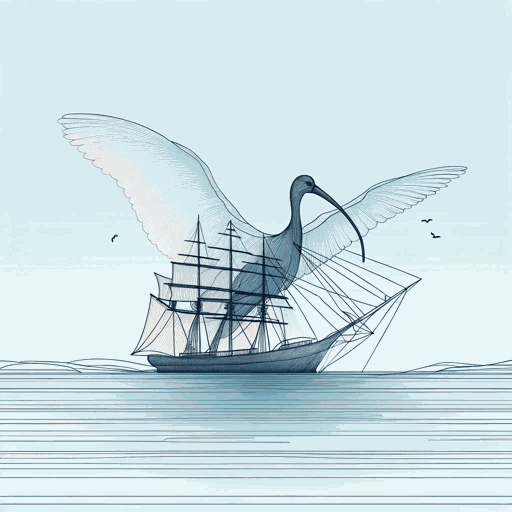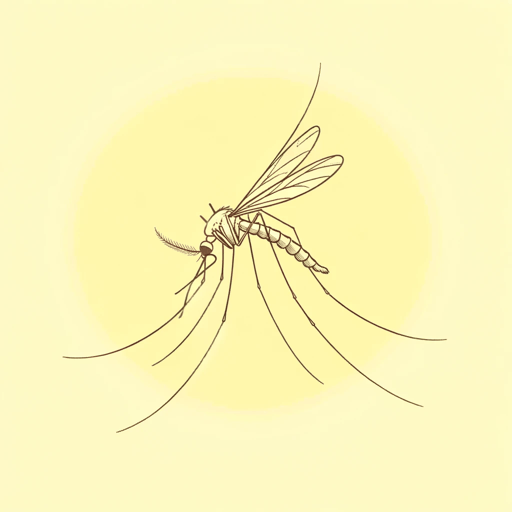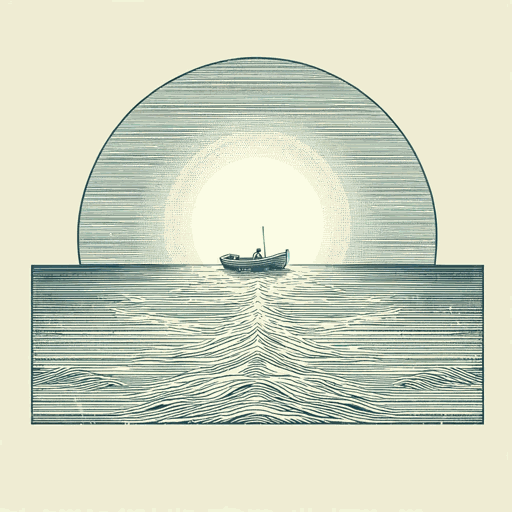57 pages • 1 hour read
Amitav GhoshGun Island
Fiction | Novel | Adult | Published in 2019A modern alternative to SparkNotes and CliffsNotes, SuperSummary offers high-quality Study Guides with detailed chapter summaries and analysis of major themes, characters, and more.
Summary and Study Guide
Overview
Written by Amitav Ghosh in 2019, Gun Island focuses on the adventures of narrator Deen Dutta, an Indian rare books dealer living and working in America, as his fascination with the Bengali folk legend of the Gun Merchant unexpectedly connects him to a varied cast of people, cultures, and countries. The book explores a variety of themes, including The Conflict Between Humans and Nature and The Politics of Travel and Movement, and it also explores the dynamics of storytelling that links the past and the present.
Amitav Ghosh is a critically acclaimed Indian writer who has penned both fiction and non-fiction, and whose works have been translated into more than 30 languages. He has received numerous national and international awards for his writing over the years. For example, The Calcutta Chromosome (1995) won the Arthur C. Clarke Award; Sea of Poppies (2008) was shortlisted for the Man Booker Prize; and the author has also received a Padma Shri, one of India’s highest honors, as well as the Jnanpith Award, India’s highest literary honor (“Biography.” Amitav Ghosh).
This guide is based on the Penguin Random House India, Kindle Edition.
Plot Summary
Dinanath “Deen” Datta is an Indian rare books dealer of Bangladeshi descent, who lives and works in New York. One winter, he visits Kolkata, (the city in India to which his family migrated after Partition) While there, he hears of an old Bengali folk legend about Bonduki Sadagar, the Gun Merchant who was forced to flee abroad to escape the wrath of Manasa Devi, the goddess of snakes. Deen’s distant aunt, Nilima Bose, asks him to visit the shrine connected to the legend to help preserve the story.
Deen is initially reluctant, but he receives a phone call from Giacinta “Cinta” Schiavon, an esteemed Italian historian and professor who is his friend and mentor. Cinta is famous for both her work and a personal tragedy, as her husband and daughter, Lucia, died in a car crash some years ago. The accident is believed to be caused by the Mafia as revenge for Cinta’s husband publishing exposés about them. Cinta had some precognition that her family was in danger right before the accident and heard Lucia’s voice call out to her moments before their deaths. Ever since, Cinta has often sensed Lucia’s presence, and heard her voice on occasion, over the years.
Cinta tells Deen of a dream she had featuring him in front of a jatra (folk opera) performance, something that did happen on her last trip to Kolkata many years ago. Deen later remembers that the jatra featured the legend of Manasa Devi. He agrees to visit the shrine after all, and the trip to the Sunderbans, where the shrine is located, is organized by Piyali “Piya” Roy, an Indian American cetologist who is close to Deen’s aunt, Nilima. Piya teaches in Oregon and visits Kolkata often for her research and to spend time with Nilima. Deen is taken to the shrine by Horen Naskar, a fisherman Nilima is acquainted with, and Tipu, the son of a villager who died working for Piya years ago. Piya has fostered Tipu ever since. Deen learns that Tipu works with “connection houses” and dalals, helping people to illegally migrate out of the country.
At the shrine, Deen sees symbols depicting the legend all around the temple walls. He also meets Rafi, the grandson of the shrine’s Muslim caretaker. While at the shrine, Tipu gets bitten by a cobra and needs to be rushed back to a hospital. On the way, he has convulsions and appears to have a vision predicting something that will happen to Rani, one of the Irrawaddy dolphins that Piya has even studying. Later, Deen and Piya discover that Rani beached herself inexplicably around the same time that Tipu mentioned her name, although Piya dismisses the possibility of Tipu having a vision.
Deen returns to Brooklyn but finds himself unable to focus on his work; he has disturbing dreams and a constant sense of unease. Tipu begins to contact him through chat messages and video calls out of the blue, asking questions about ghosts and shamans. Deen learns from Piya that Tipu has been having migraines and seizures ever since the cobra bite, and the only thing that helps him is spending time with Rafi, whom Piya thinks has become more than just a friend. Months after Deen’s return, Tipu suddenly tells Deen that he must meet Cinta at all costs. Deen is already scheduled to meet with her at a conference the following week.
Deen’s trip to LA is besieged by strange and disturbing occurrences, beginning with a wildfire breaking out in LA shortly before they are scheduled to arrive. The opening talk of the conference is delivered by a young historian who speaks of climate change in the 17th century, and how the apocalypse predicted then will occur in contemporary times. Deen meets with Cinta, who invites him to her niece Gisa’s place. While they are there, Gisa’s dog is bit and killed by a yellow-bellied sea snake, an extremely venomous species that is rarely found near LA. Gisa claims to have heard Lucia’s voice as the dog was dying.
Cinta delivers the closing talk of the conference about 17th-century Venice, and through the details she presents, Deen realizes that Gun Island, a place referenced in the legend, is actually Venice. Other details of the legend come together and Cinta and Deen decipher the story to have occurred in the 17th century, based on actual historical events and places. One of the Gun Merchant’s companions appears to have been a Portuguese Jew, and Cinta invites Deen to Venice, where she has an apartment, so he can see the Ghetto where the Venetian Jews lived in the 17th century. Deen has an opportunity to visit Venice a few months later when Gisa begins working on a documentary about the immigration crisis in Italy and needs a translator who speaks Bangla.
In Venice, Deen is besieged by incidents that follow similar patterns as the Gun Merchant’s story. Furthermore, on his first day there, he runs into Rafi. He also learns that Gisa is delayed in Rome as a boatload of refugees is arriving from Egypt, and the Italian minister is determined to stop them, claiming only a miracle will allow them to enter Italy. Deen also hears from Piya who had learned that Tipu is not in Bangalore (Bengaluru), as he has been claiming to be; he has left the country, him and Rafi having supposedly migrated together. Piya believes that Rafi was headed for Venice, and Deen confirms that he has seen the young boy. When Deen looks for him again, he learns that Rafi was mugged, possibly on the orders of a trafficker from whom Rafi had borrowed a large sum. He had taken a loan out to help out a friend he was traveling with, but got separated from him in Turkey. Deen is sure that the friend is Tipu.
The refugee boat becomes a growing issue, and different groups of activists organize boats to head out and meet the refugees themselves. Cinta arrives in Venice and shows Deen around the city, in the course of which she has an accident and fractures her ankle. At the hospital with Cinta, Deen runs into Rafi, who tells him how Tipu continued to have convulsions and visions after the snakebite. He and Rafi traveled toward Venice together but got separated in Turkey. Tipu managed to cross over later, but had a dream about an Ethiopian woman in Egypt and became desperate to meet her. Rafi sent over the money to help him do so, and once in Egypt, Tipu called to say there would be no contact for a while, but that they would be reunited soon. Rafi shows Deen a picture of the refugee boat and points out Tipu among the passengers, and Deen immediately arranges for himself, Piya, Rafi, Cinta, and Gisa to join one of the activist boats heading out to meet the refugees.
The day the boat sets sail, the country is beset by strange weather, from hailstorms to tornadoes. Deen and the group set sail on the Lucania, and while the strange weather abates, they witness other unusual things—an unprecedented number and variety of dolphins and whales all head in the same direction. The Lucania eventually reaches its destination, but it and other activists’ boats are cordoned off by the Italian navy and ordered not to interfere with the refugees. As the refugee boat approaches, dolphins and whales surround it, while millions of birds arrive overheard and bioluminescence lights up the water; an Ethiopian woman is spotted on the boat, her arms raised to the skies. Deeming the incident a miracle, the admiral of the Italian navy chooses to rescue the refugees after all. Deen finds Cinta lying down in her cabin, claiming that Lucia has arrived to take her away. She thanks Deen for the gift he has given her, and he realizes that she always knew he would lead her to this moment. While the Lucania rejoices over the refugees’ success, Cinta passes away peacefully.
Related Titles
By Amitav Ghosh

Flood of Fire
Amitav Ghosh

In an Antique Land
Amitav Ghosh

River of Smoke
Amitav Ghosh

Sea of Poppies
Amitav Ghosh

The Calcutta Chromosome
Amitav Ghosh

The Glass Palace
Amitav Ghosh

The Great Derangement: Climate Change and the Unthinkable
Amitav Ghosh

The Hungry Tide
Amitav Ghosh

The Shadow Lines
Amitav Ghosh

